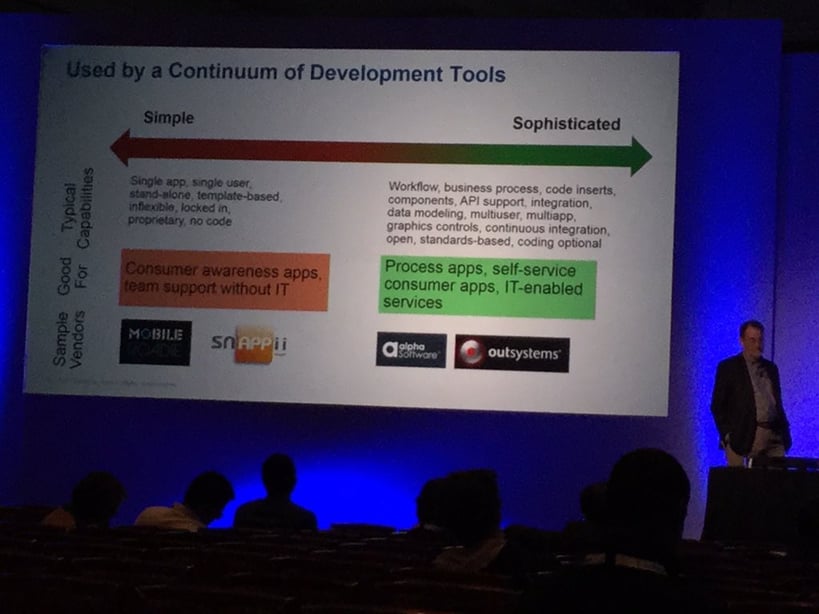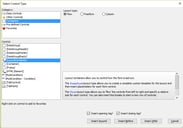Rapid Mobile App Development (RMAD) can help businesses speed digital transformation by making app development possible for more employees.
As companies realize the real benefits of building custom, offline-capable mobile solutions for their workforce who work primarily standing up (medical personnel, inspectors, technicians, construction workers, salespeople, market researchers, production workers, quality control workers, Oil and Gas workers, warehouse personnel etc,), the pressure to deliver CRUD mobile apps that connect to back end databases and systems is growing.
Factoid: 60% of workers worldwide work standing up (2.6 Billion people)Organizations have been thinking and planning for the day (within 5 years,) when 50% of enterprise apps will be mobile (according to Gartner) but they are also realizing that the time to act is now if they want to maintain their competitive position in the market.
Traditional approaches like building apps using the native Apple and Android and Microsoft tool-kits present three problems:
- They require highly skilled developers who are often simply not available at rates that confirm to HR guidelines.
- Apps have to be built for each hardware platform.
- Apps take a long time to build and are expensive.
Points 1 and 3, and to some extent point 2, also apply to MADP (Mobile Application Development Platform), such as Xamarin, which are very much coding-centric.
As a result of this problem, certain software vendors have introduced RMAD (Rapid Mobile Application Development - a Gartner term) platforms that can be used by a much broader base of developers and even analysts and power-users in line of business. Forrester calls this category "low code" and we call it "coding-optional"
Analysts have written extensively about this topic and have started to classify RMAD platforms as either "simple or sophisticated." Most of the RMAD tools or platforms fall into the "simple" category and the number of "sophisticated" products is much smaller. See the picture below from the Gartner AADI conference.
The key difference between "simple" and "sophisticated" is the ability to write custom code if need be to ensure the project can be 100% completed, although the objective is to minimize this as much as possible to achieve productivity and to broaden the base of people who can develop using the platform. As you can see Alpha Anywhere is in the "sophisticated" bucket and its strength is recognized by its InfoWorld 2016 Technology of the Year Award and by its #1 ranking by enterprises on Gartner Peer Insights.
There is another very important consideration in selecting an RMAD platform.
Typically you want the app to be able to run as a web app on desktop computers and as true mobile app on mobile devices. What this means is that you want the mobile app to be indistinguishable from a native app and be more than simply being a responsive web app that adjusts to screen real-estate of mobile.
Alpha Anywhere is in fact the only sophisticated RMAD that meets these increasingly critical criteria which is driven by the rising User Experience expectations of the users of internal (b2b and b2e) business apps.
Get a demo or contact marketing@alphasoftware.com to learn more.






Comment